
10 Jun TWT Chennai Offline Conference (Jul 12, 2025)
Welcome
Jul 9: REGISTRAION IS CLOSED
Tech Writer’s Tribe invites all tech writers based in Chennai and nearby to attend the third offline conference for Technical Writers.
The first conference (Dec 3, 2022) was the biggest ever regional event held in Chennai for the tech writing community. The second conference (May 27, 2023) got bigger in numbers.
Let us join hands again and make it a bigger success to yield better benefits for the tech writers of Chennai and Tamil Nadu.
About the Conference
Any event involves a lot of hard work. TWT is glad to have city volunteers who give their best efforts to make an event successful and care to think about all facilities of the participants and speakers.
For this conference in Chennai, Jude A is leading the efforts. For any questions, feel free to connect with them.
Connect with Jude
Write to TWT Team: support@techwriterstribe.com
Or Call/WhatsApp/Telegram: +91 7337332587
The conference is for technical writers at all levels. The conference offers an opportunity to learn, make connections, and discuss technical writing as a career.
This event welcomes individuals who fit into the following categories:
- Technical writers who need guidance from the experts or want to connect with others in their field.
- Managers who want to enhance their team’s performance by identifying areas of improvement.
- Individuals who enjoy keeping up with trends in technical writing.
- Companies who want to understand how to effectively use technical documentation to enhance their product.
- Freshers/Professionals from other fields who are considering technical writing as a career and would like to meet with professionals in this field.
The Venue: ContentStack India Pvt.Ltd
- Address: 5th Floor, WorkEZ, Helix.21,
Guru Nanak College Rd, (Above West Side), Indira Gandhi Nagar, Velachery, Chennai – 600042., Tamil Nadu - Location Map: https://maps.app.goo.gl/Es6nRCv878vKYH3d7
- The Date: July 12, 2025
- The Duration: 9.15 AM – 5.30 PM IST
Contentstack
Visit website: https://www.contentstack.com/
Registration is open for individuals and groups of 3 or more.
– Individual: INR 700 (UPI) or INR 750 (Cards)
– Group of 3 or more: per person INR 650 (UPI) or INR 700 (Cards)
The Schedule
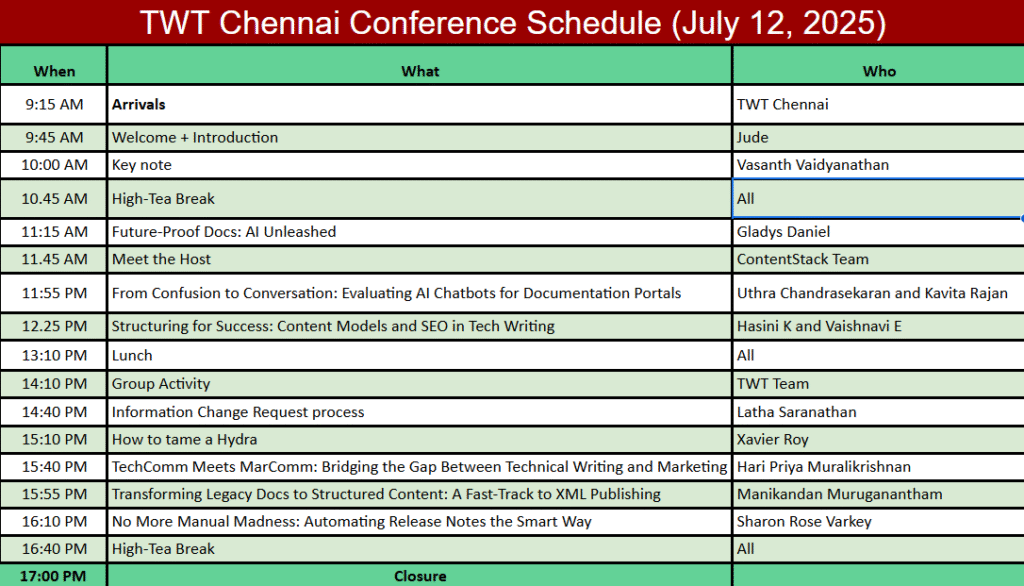
Key Note
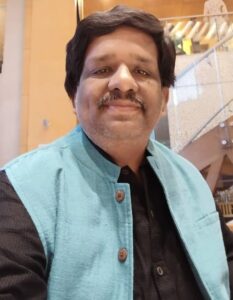
The Speaker: Vasanth Vaidyanathan
Current Role: Director, Knowledge and Learning, KLA
Vasanth Vaidyanathan is a technical communications leader with 26+ years of industry experience. He has successfully led and supported large global teams and projects.
He is passionate about building teams and growing leaders. He is currently Director of Knowledge Services in KLA Corporation, based in Chennai.
Connect on LinkedIn
The Experts and their Sessions

The Presenter: Gladys Daniel
Current Role: Lead Writer – Technical Content at Contentstack
The Topic
Future-Proof Docs: AI Unleashed
About the Session
In this session, learn about the journey that the Contentstack documentation team has taken to integrate AI into their documentation workflows to meet the demands of a rapidly evolving composable digital experience platform. As new APIs, features, and integrations are released at a fast pace, maintaining clear, accurate, and user-friendly documentation became increasingly challenging.
The talk explores how the team uses AI tools such as ChatGPT, Perplexity, and Gemini as collaborative partners to streamline tasks like documenting API references, generating release notes, and ensuring editorial consistency, while still preserving a human-centered, empathetic voice in their content.
Attendees will gain insights into practical strategies for scaling documentation efforts with AI, including how AI is used across content creation, review cycles, and terminology management. The session also highlights quality guardrails, real-world examples, and lessons learned, offering a roadmap for teams aiming to future-proof their documentation without compromising quality or trust.
About the Presenter
Gladys Daniel drives documentation at ContentStack as a strategic function within the product lifecycle. Beyond content generation, she architects scalable knowledge systems, aligns documentation with product and customer success goals, and enables cross-functional efficiency through intelligent content design. With over a decade of experience, she brings clarity to complexity and ensures that documentation delivers measurable value to both users and the business.
Passionate about the evolving landscape of technical writing, Gladys advocates for the integration of AI-powered strategies into documentation practices. She encourages the technical writers to embrace continuous learning, adapt to emerging technologies, and maintain the human touch in content creation. Her dedication to fostering growth and innovation make her stand out as a thought leader and mentor for the Docs team.

The Presenter: Xavier Roy
Connect on LinkedIn
The Topic
How to tame a Hydra
About the Session
Feeling swamped by all the specs, notes, and tasks hitting you every day? As a technical writer, managing so much information can feel like fighting a never-ending battle. But what if you could turn that chaos into a powerful advantage?
In “How to Tame a Hydra,” you’ll learn a smart way to manage your knowledge – Personal Knowledge Management (PKM). We’ll show you how to build a system that helps you cut through the noise, remember key details, and turn your ideas into clear, strong content.
You’ll discover simple methods for quickly saving thoughts, organizing complex info, and even using short notes to keep track of your day and manage tricky meetings. Get ready to reduce stress, gain clarity, and free up more time for your best writing.
About the Presenter
I’m a technical communication veteran and information experience designer, and I live by the philosophy that knowledge shared is knowledge doubled. After two decades of diverse roles, I’m now dedicated to empowering others with my experience, particularly in the evolving fields of personal knowledge management and AI integration in work and life.

The Presenter: Latha Saranathan
Current Role: Documentation Manager, KLA
The Topic
Information Change Request process
About the Session
The Information Change Request (ICR) process is a centralized, automated workflow at KLA for managing document updates and new content creation within the Customer Portal. It acts as a formal ticketing system—integrated with ServiceNOW (SNOW)—to ensure traceability, accountability, and consistency across documentation. Employees from teams like NPI, TSE, and Field Support can submit ICRs, each assigned a unique tracking number and email notifications for visibility.
Once submitted, writers validate and self-assign the ICR, with additional checks by the PSO team for field-originated requests. The document lifecycle includes content updates, metadata verification in CCMS, and reviews by peers and SMEs. After final approval, the document is published and the ICR is marked resolved. The process follows defined status stages—from New to Closed—ensuring structured, quality-driven documentation management.
About the Presenter
Latha Saranathan is a seasoned Technical Publications Manager at KLA, Chennai, with over 20 years of experience in technical communication. She leads documentation strategy and execution across multiple product divisions under the Learning & Knowledge Services (LKS) group, covering a wide range of content including service procedures, software documentation, training manuals, and customer-facing materials.
With a background in Electronics and Communication Engineering, Latha brings a strong technical foundation to her role, making complex concepts accessible and user-friendly. She has also completed a Leadership Development certification from IIIT, enhancing her skills in strategic planning, team leadership, and cross-functional collaboration.
Latha manages a diverse team of writers and works closely with global stakeholders. Her work spans both mature and newly acquired products, and she plays a key role in driving benchmarking initiatives to raise documentation standards across the organization.
The Experts and their Session
The Topic
From Confusion to Conversation: Evaluating AI Chatbots for Documentation Portals
About the Session
The Problem
As documentation sets grow in size and complexity, users increasingly struggle to find the right information quickly. Traditional search functions — keyword-based, rigid, and often context-blind — leave users frustrated and support teams overwhelmed. In response, many organizations are exploring AI-powered chatbots as a solution. But without clear evaluation criteria, chatbot implementations risk becoming just another layer of confusion instead of offering meaningful guidance.
The Solution
This session demystifies the process of evaluating and implementing AI chatbots in documentation portals — not as a flashy add-on, but as a true extension of the user experience. We’ll explore how to assess chatbot effectiveness through dimensions like response accuracy, relevance, integration with existing content, and conversational design. Drawing from real-world examples and pilot studies, the talk will offer a framework for choosing the right chatbot model (LLM-based or rules-based), training it with documentation content, and measuring its impact with user behavior analytics and feedback loops.
Key Takeaways
- Understand the gap between traditional documentation search and conversational experiences
- Learn how to define success criteria when evaluating AI chatbots for tech content
- Explore practical approaches to training, fine-tuning, and integrating chatbots into doc portals
- Discover potential pitfalls and ethical considerations when deploying AI in user-facing tools
- Take home an evaluation checklist to guide your team’s chatbot adoption strategy
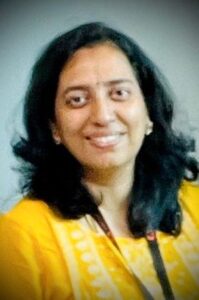
Co-Presenter: Uthra Chandrasekaran
Current Role: Senior Manager, Gigamon
About the Presenter
Uthra Chandrasekaran is a Senior Manager in Technical Writing with over 18 years of experience across telecom, ERP, healthcare, and fintech domains. She leads cross-functional teams focused on delivering scalable, user-centric documentation.
A strong advocate for structured authoring, AI integration, and continuous documentation, Uthra is passionate about driving content strategy that improves both user experience and business outcomes.

The Presenter: Kavita Rajan
Current Role: Technical Writer, Gigamon
About the Presenter
Kavita is a Technical Writer at Gigamon with 6+ years of experience documenting software systems, products, and interfaces for diverse audiences and industries.
Outside her professional world, she finds inspiration in traveling and exploring diverse coffee cultures.
The Experts and their Session
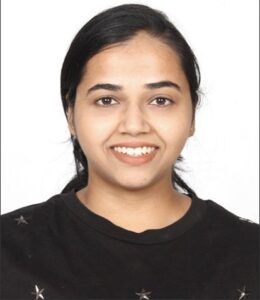
Co-Presenter: Hasini K
Current Role: Technical Writer, Gigamon
About the Presenter
As a technical writer with over eight years of experience, I have had the privilege of working across distinct industries—Rolls-Royce engines, wind turbines, accessibility products, and networking domain. Each of these fields has presented unique challenges and opportunities, allowing me to refine my approach to structured documentation, content strategy, and technical communication.
From highly complex engineering systems to accessibility-focused innovations, I have gained valuable insights into how clear, well-structured documentation can enhance user experience and streamline technical processes.
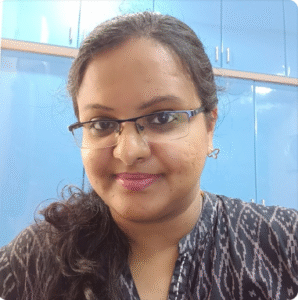
The Presenter: Vaishnavi Eswaran
Current Role: Senior Technical Writer, Gigamon
About the Presenter
With over 11+ years of experience in the technical writing field, I have worked with leading industry players such as Cisco, Ericsson, and Hitachi, and now with Gigamon. My expertise spans a wide range of topics, with a particular focus on networking. |
The Topic
Structuring for Success: Content Models and SEO in Tech Writing
About the Session
The Problem
In the rush to deliver documentation alongside fast-moving product releases, technical content often becomes fragmented, inconsistent, and difficult to find. Writers face duplicated effort, users struggle with discoverability, and content quickly becomes unmanageable. What is the common thread behind these challenges? A lack of structured content models and insufficient focus on search optimization, both internally and externally.
The Solution
This talk introduces the power of content modeling, a structured framework that defines how content types, metadata, and relationships are designed and reused across the documentation ecosystem. Paired with SEO best practices, content models ensure consistency, support content reuse, and significantly improve findability for both users and search engines. Whether you’re using DITA, or a CMS platform, the principles of structured authoring and discoverability apply. Real-world examples will illustrate how we have successfully implemented scalable models and improved user experience across the board.
Key Takeaways
- Understand how content models solve fragmentation and scale content effectively
- Learn how to structure content for both reuse and SEO discoverability
- Discover practical steps to audit and redesign your documentation using content modeling principles
- Explore real-world examples of structured content using topic-based authoring (e.g., DITA, CMS)
The Experts and their Sessions
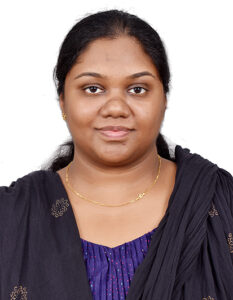
The Presenter: Sharon Rose Varkey
Current Role: Lead Writer, Gigamon
The Topic
No More Manual Madness: Automating Release Notes the Smart Way
About the Session
Across industries, technical writing teams still rely on outdated, manual workflows to produce release notes, often cobbling together inputs from bug-tracking tools, chasing last-minute updates, and reformatting data for every release cycle. The result? A time-consuming, error-prone process with too many handoffs and too little scalability. More critically, the final output often ends up siloed from the main documentation set, leading to a fragmented customer experience where users must hunt through multiple portals to find critical product updates.
The Solution
This talk presents a smarter way to manage release notes — through automation, integration, and a user-centric publishing model. By connecting issue-tracking tools like JIRA with publishing platforms via configurable integrations, tech writers can automatically extract and publish relevant bug details, enhancements, and security updates. Adding filtering capabilities and a staging interface allows teams to retain editorial oversight while eliminating repetitive formatting and review loops. This approach ensures faster updates, higher consistency, and a unified destination for customers seeking release-critical content.
About the Presenter
A Technical Writer with 8 years of experience creating user-focused documentation in the tech and healthcare sectors. Currently at Gigamon, I simplify complex technical concepts into clear, accessible content that improves product usability and customer experience. Previously at KanTime, I developed user guides, release notes, and internal docs for healthcare software.
I’m proficient in tools like MadCap Flare, Confluence, and Snagit, and I enjoy collaborating with cross-functional teams to ensure documentation is accurate, structured, and genuinely helpful. I believe great content doesn’t just inform—it empowers.

The Presenter: Manikandan Muruganantham
Current Role: Lead Technical Writer, Xylem
The Topic
Transforming Legacy Docs to Structured Content: A Fast-Track to XML Publishing
About the Session
This demo session showcases an automated pipeline for converting legacy documentation into structured, editable formats. It covers the end-to-end process, including converting Word files to structured XML using an Oxygen plugin, automating illustration conversion to SVG via macros, batch renaming files, importing content into a CCMS, and publishing through a standard output pipeline.
The session highlights a significant productivity boost: what once took 1–2 days for a 15-page document now takes just around 3 hours, thanks to automation, depending on file complexity and team experience. Attendees will gain practical insights into streamlining legacy content migration using efficient, tool-based workflows.
About the Presenter
I am a Lead Technical Writer with nearly 10 years of experience, having progressed from an individual contributor to a strategic documentation leader. My journey spans multiple domains, including aerospace, software, and hardware. I specialize in creating end-to-end software documentation for cloud applications as well as hardware documents such as Installation, Operation, and Maintenance (IOM) manuals.
In my current role, I lead a focused documentation team, driving process adherence, mentoring writers, and aligning documentation practices with organizational goals. I am passionate about building scalable content strategies, promoting structured authoring, and delivering high-quality documentation that adds value to both users and the business.
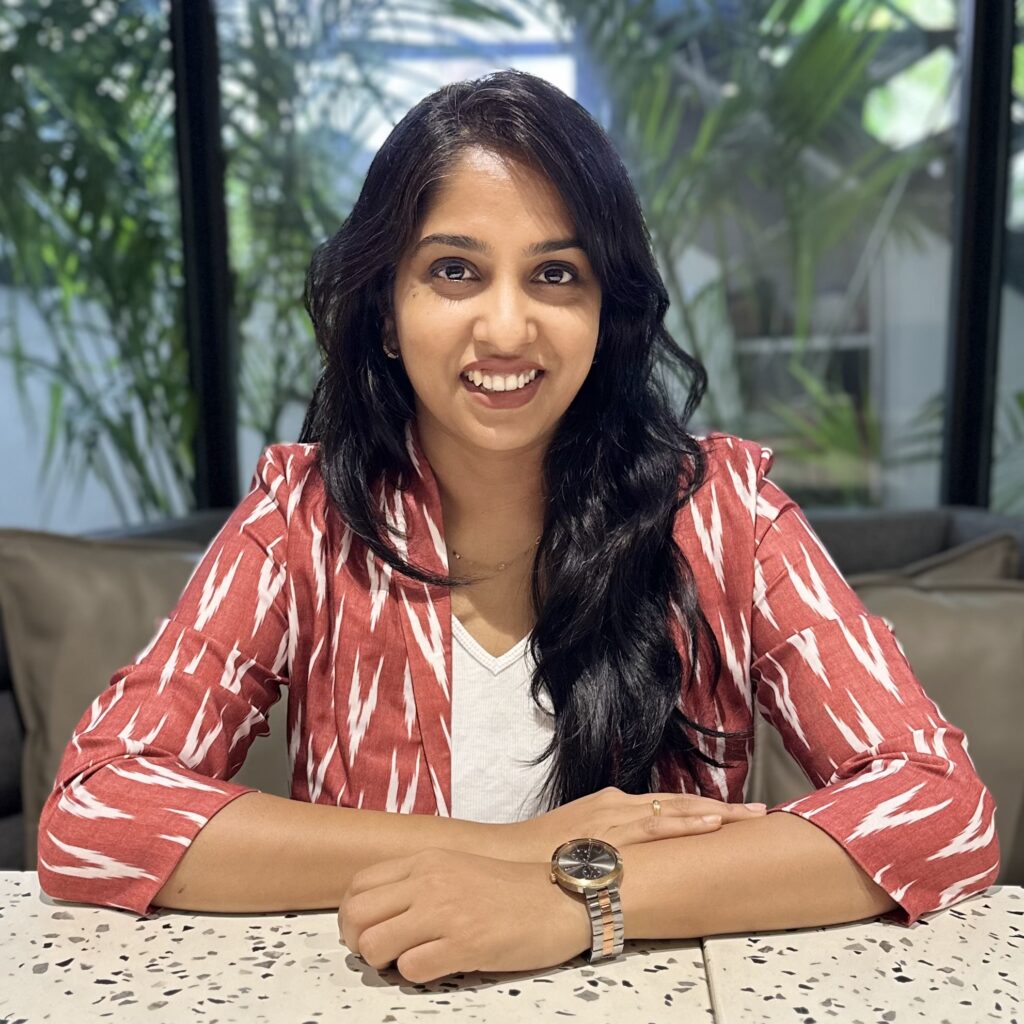
The Presenter: Hari Priya Muralikrishnan
Current Role: Lead Content | Product Marketing 24]7.ai
The Topic
TechComm Meets MarComm: Bridging the Gap Between Technical Writing and Marketing
About the Session
Technical content development isn’t just about user manuals or product documentation anymore. Today, it spans a broad spectrum, from support content to sales enablement assets, a fine blend of traditional technical writing and marketing communication. And somewhere at this intersection there is compelling opportunity to craft content that is both technically accurate and strategically persuasive.
In this session, I will explore the evolving role of technical content in marketing, drawing from my experience as a product marketer and technical writer. I will dive into the nuanced process of transforming raw technical information into stories that actually speak to your audience and influence buyer decisions and drive top-of-funnel engagement.
From initial debriefs to design, from laying out structure to fine-tuning for clarity and impact, I’ll share how wireframing, content positioning, and iterative optimization shape content that not only informs but also converts. Attendees will gain practical takeaways for balancing accuracy with approachability, and learn how to ensure their technical content contributes meaningfully to brand voice, sales goals, and reader experience.
About the Presenter
Hari Priya is a seasoned information developer with over a decade of experience in enterprise-level content development, spanning product documentation, sales enablement, and customer-facing communication. As a Content Lead at [24]7.ai, she plays a key role in shaping product messaging, creating impactful sales kits and customer marketing collaterals, and managing internal communications, and SEO-driven content strategies.
She brings a unique blend of technical precision and marketing insight to every piece she crafts, ensuring it not only informs, but also resonates with audiences and delivers real-world value. Hari Priya believes the most impactful content is born at the crossroads of communication, clarity, and storytelling.
Beyond the world of content, Hari Priya is a self-taught mandala artist and a passionate singer, with a deep admiration for the timeless music of Ilayaraja.
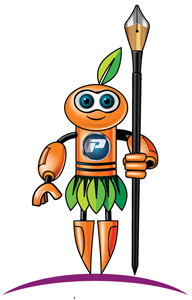



No Comments